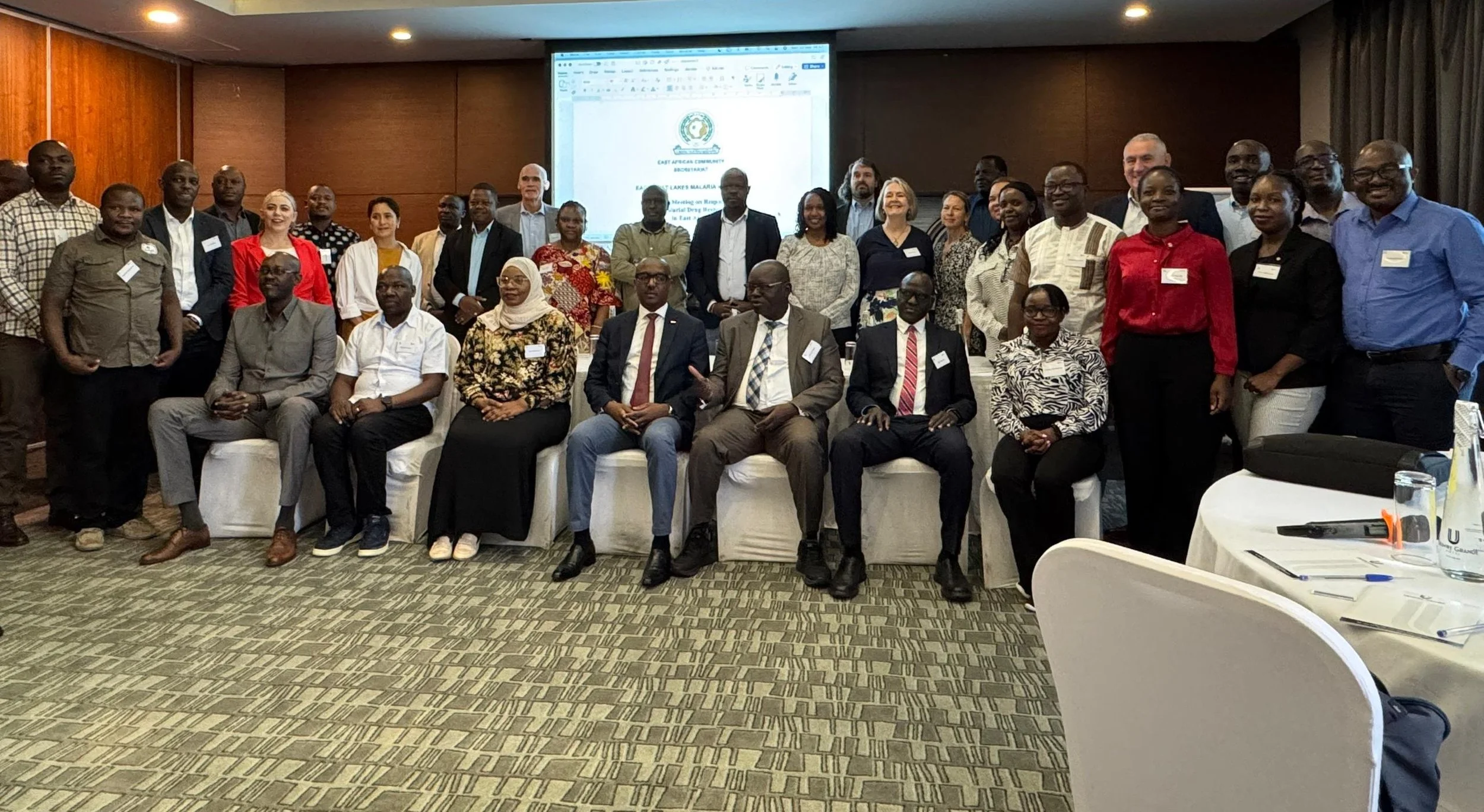East African Community ministers of health endorse new regional action plan to tackle drug-resistant malaria
On 9 May 2025, during the 25th Ordinary Meeting of the East African Community (EAC) Sectoral Council of Ministers of Health, the region’s ministries of health officially endorsed the Regional Detailed Action Plan for Responding to Antimalarial Drug Resistance in East Africa. This decision marks a critical step forward in strengthening cross-border coordination to address the growing threat of drug-resistant malaria, which poses a serious risk to the effectiveness of current treatment protocols across the region.
Malaria remains a significant public health challenge in East Africa, where more than 300 million people, approximately 80 per cent of the region’s population, are at risk. The regional action plan stemmed from the information included in a recent report on antimalarial resistance in the region, which presents mounting evidence of drug-resistant malaria parasites. It particularly affects artemisinin-based combination therapies, reinforcing the need for coordinated and cross-border interventions.
Following the signing, Prof Karen Barnes, MARC SE-Africa lead and coordinator at the University of Cape Town, highlighted the importance of this step:
"Malaria knows no borders, and neither should our response. This consensus-based regional action plan demonstrates the power of multinational collaboration in tackling antimalarial resistance. Now is the critical moment for East African nations and international partners to commit to sustained action and ensure effective malaria treatment remains available for millions at risk."
Addressing drug resistance necessitates a comprehensive response incorporating genetic surveillance, harmonised therapeutic efficacy studies, optimised treatment strategies, policy adaptation, and improved supply chain management. Considering the movement of people across borders, a multinational and collaborative approach is essential. The regional detailed action plan outlines targeted interventions to avert the heavy toll seen previously with chloroquine-resistant malaria, while underscoring the pivotal role of regional coordination.
This landmark document was created in a collaboration between Mitigating Antimalarial Resistance Consortium in South-East Africa (MARC SE-Africa) and the East African Community (EAC) Roll Back Malaria (RBM) Secretariat with health representatives from all EAC member states, and their key local, regional and global health partners including the President’s Malaria Initiative (PMI), Global Fund, Clinton Health Action Initiative and Medicines for Malaria Venture.
Stakeholders driving the development of the EAC Action Plan on Antimalarial Resistance, led by the University of Cape Town and MARC SE-Africa, in partnership with the EAC RBM Secretariat. Participants include the EAC National Malaria Programmes, the Global Fund, the Presidents Malaria Initiative, the Clinton Health Access Initiative, and Medicines for Malaria Venture.
Dr Eulambius Mlugu, a senior researcher at the Muhimbili University of Health and Allied Sciences, praised the collaborative aspects of this process:
“The invaluable commitment, tireless support, and strong collaboration between MARC SE-Africa, the EAC RBM Secretariat led by Dr Michael Katende, the national malaria control programmes in the EAC, and other stakeholders were key for this critical milestone. Their consensus on this framework marks a beginning for stronger cross-border responses against drug-resistant malaria in the region.’’
With recent reductions in international funding, including from USAID, regional ownership of malaria control efforts has become increasingly important. This initiative demonstrates East Africa’s proactive leadership in tackling malaria and aims to mobilise longer-term financial and technical support to sustain effective interventions against drug-resistant malaria.
Background and more information
The MARC SE-Africa consortium aims to better define the extent of antimalarial resistance in SE-Africa and to expedite the sharing of such evidence with National Malaria Programmes and their implementation partners. The project’s goal is to protect the efficacy of current first-line malaria treatments, which can help prevent thousands of additional malaria deaths annually. The project (GA N° 101103076) is supported by the Global Health EDCTP3 Joint Undertaking and its members.
Antimalarial drug resistance profile for the East African region: https://tinyurl.com/5xh378ux
Regional detailed action plan for responding to antimalarial drug resistance in East Africa: https://tinyurl.com/4c7r3kn4
More information about the collaborative process that resulted in the regional action plan: https://tinyurl.com/33ehcv3e
MARC SE-Africa website: https://www.marcse-africa.org/

